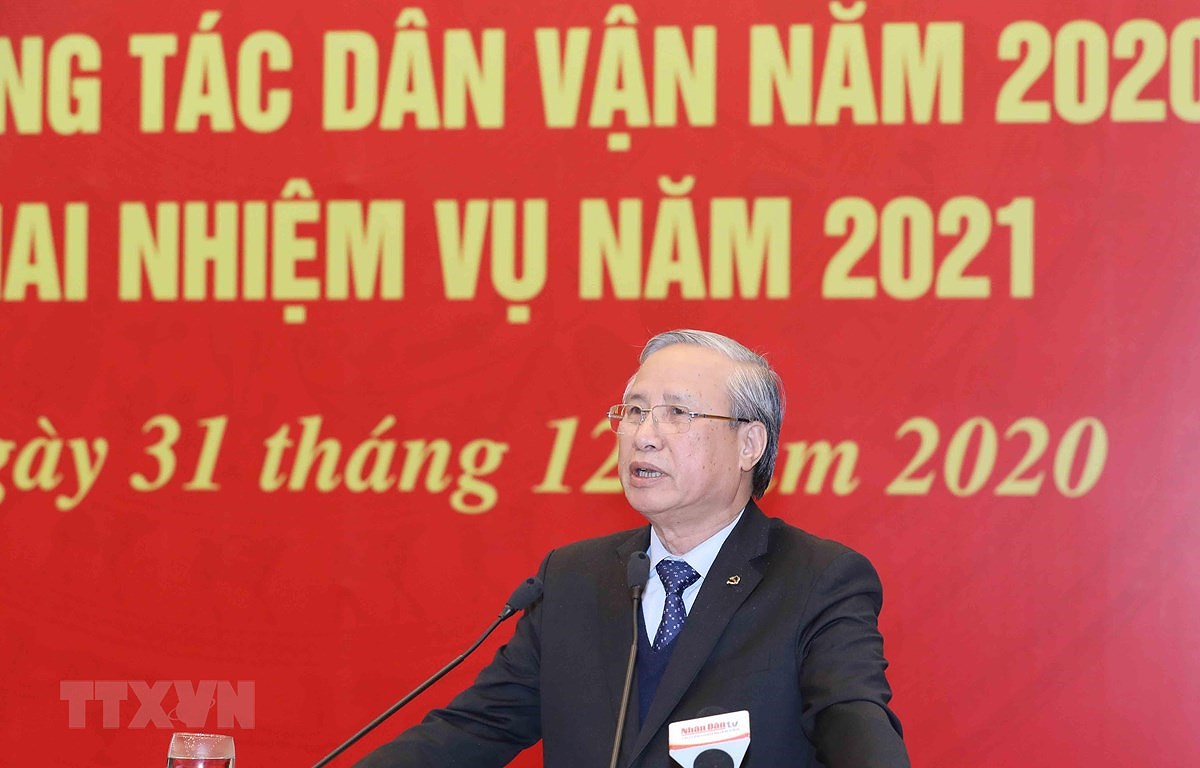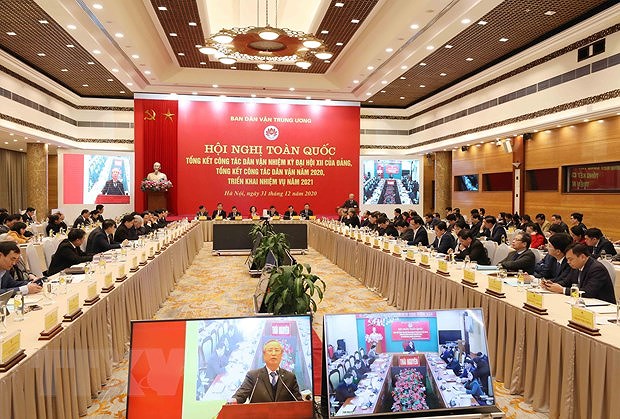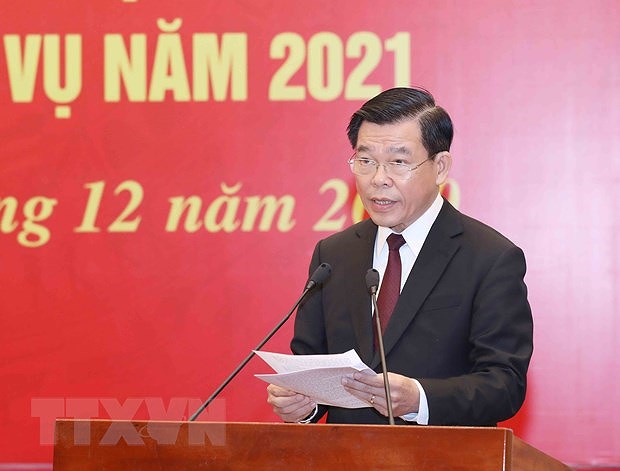Achievements in mass mobilisation work recorded over the last five years have contributed significantly to enhancing the close ties between the Party, the State, and the people, a Party official said at a conference in Hanoi on December 31.
 Tran Quoc Vuong, permanent member of the Party Central Committee’s Secretariat, speaks at the meeting. (Photo: VNA)
Tran Quoc Vuong, permanent member of the Party Central Committee’s Secretariat, speaks at the meeting. (Photo: VNA) Achievements in mass mobilisation work recorded over the last five
years have contributed significantly to enhancing the close ties between the
Party, the State, and the people, a Party official said at a conference in
Hanoi on December 31.
Such results
have also helped consolidate great national unity, carry forward the strength
of the people in national construction and defence, and raise public trust in
the Party and the State, Tran Quoc Vuong, permanent member of the Party Central
Committee’s Secretariat, told the conference reviewing mass mobilisation work during
the 12th tenure of the Party Central Committee.
Vuong attributed
the achievements to the involvement of the entire political system, saying they
have played an important role in socio-economic development, ensuring national
defence, security and external affairs, improving people’s living standards,
meeting the legitimate and legal rights of the people, building a pure, strong
Party and political system, and fighting corruption and wastefulness.
 At the conference (Photo: VNA)
At the conference (Photo: VNA)
The fatherland
front and socio-political organisations have revamped their operational
methods, promoted democracy, and engaged in supervision and criticism, thus
contributing to Party and authority building, he went on.
Vuong suggested
building an action programme to implement the resolution to be adopted at the
13th National Party Congress and stressed the need to create changes
in the mindset and sense of responsibility among all-level Party Committees and
the entire political system.
The people’s lives,
satisfaction, and trust must be the crucial criteria in assessing the quality
of the apparatus and officials and Party members, he said.
“All guidelines
and policies of the Party and the State must stem from the people’s legitimate
interests and wishes,” he stressed, adding that residents should be encouraged
to participate in the implementation of guidelines and policies in the most
effective fashion.
 Nguyen Hong Linh, deputy head of the Party Central Committee’s Commission for Mass Mobilisation, speaks at the meeting. (Photo: VNA)
Nguyen Hong Linh, deputy head of the Party Central Committee’s Commission for Mass Mobilisation, speaks at the meeting. (Photo: VNA)
Nguyen Hong
Linh, deputy head of the Party Central Committee’s Commission for Mass
Mobilisation, also emphasised the work’s significance in intensifying public consensus
and trust in the Party.
Due attention
has been paid to mass mobilisation among ethnic minority groups, religious
followers, and overseas Vietnamese, he said, adding that the sector has
actively grasped the situation, minimising the appearance of “hot spots” in security
and safety.
People-to-people diplomacy in combination with mass mobilisation in border
areas has also received much attention, helping to firmly protect national
border sovereignty and forge solidarity, friendship, and cooperation for mutual
development with people of foreign countries.
Linh, however, also
pointed to limitations in the work, such as low awareness among certain Party
Committees and organisations about mass mobilisation, saying they have yet to gain
a high sense of responsibility in this regard.
A number of
localities have yet to place importance on public feedback during the issuance
of policies and regulations, according to the official.
It is necessary
to further raise the sense of responsibility and step up coordination in mass
mobilisation in order to improve the efficiency of the work in the 2016-2021
period, Linh suggested.
He proposed that
major mobilisation tasks include effectively devising and implementing the above-mentioned
action plan for 2021-2026, reforming communications work, and promoting the
responsibility of the political system, especially State administrative
agencies, among others./.